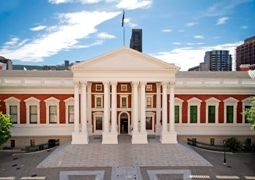
The Debate on Adjustments Appropriation Bill came before the National Council of Provinces (NCOP) today. As expected, a heated debate ensued as to whether it would serve its intended purpose or not, given the mounting reports of fraud and corruption levelled against those charged with the task of managing public funds.
As a result of these growing concerns, the Chairperson of the Select Committee on Appropriations, Ms Dikeledi Mahlangu, who presented the report of the committee on the Bill during the debate, stated that the committee has called upon the National Treasury and the Department of Planning, Monitoring and Evaluation to strengthen budget management, deal with corruption and financial mismanagement.
She called for drastic measures to ensure that internal controls of departments are enhanced and are in a position to detect fraud and corruption. Furthermore, she stated the need to expedite the Procurement Bill to localise procurement processes and management thereof to achieve inclusive economic growth.
Ms Mahlangu commended the National Treasury for reinstating R2.4 billion for the Department of Agriculture to protect food security, given the current levels of poverty and unemployment. For the continued non-expenditure of funds at local government, she asked the National Treasury to assist municipalities to develop necessary skills to be in a position to spend their budgets adequately.
In her view, the state-owned enterprises bailouts take away resources from the poor. She said: “As a committee, we have requested the Parliamentary Budget Office to do research on the feasibility of National Treasury’s measures and interventions in the economy.”
Speaking during the debate, the Minister of Finance, Mr Tito Mboweni, said: “We want to emphasise that we are in this situation principally because of Covid-19. It has turned things upside down. Bringing major changes in our economic forecast and our revenue streams.”
Mr Mboweni told the delegates to the NCOP that there is a serious tension between expenditure and the income which is essentially revenue collections, as there is shrinkage on revenue generation. He added that “revenue shrinkages are much more than we thought, and our ability to fund what we wanted to fund will be challenged”.
He said: “It seems many have not internalised the difficulty we are facing. As the National Treasury, we are frustrated by the lack of understanding of the situation we are in.” He added: “If we were to be frank, we are in a period in which we will have to consider cutting our own salaries because the GDP (gross domestic product) is shrinking and the size of our economy will not be the same.”
He said the government has borrowed from the International Monetary Fund (IMF) and Brics Bank. He said they are on the way to the World Bank and other institutions as what they have received to bridge the gap which is widening between shrinking revenue collection and expenditure, will not be enough.
Referring to acts of corruption related to the Covid 19 budget, Mr Mboweni admitted that there have been thugs and “tsotsis” who formed businesses for the purposes of looting the money which is aimed at pushing back the frontiers of Covid-19. Based on that, he said they have urged the provinces to publish a list of people and business companies that got tenders for health products and PPEs (personal protective equipment).
“It’s important that we are transparent and in full control of the fiscus. We are now considering coming up with a central procurement and transversal disbursement system to curb fraud and corruption,” he said.
By Abel Mputing
31 July 2020

